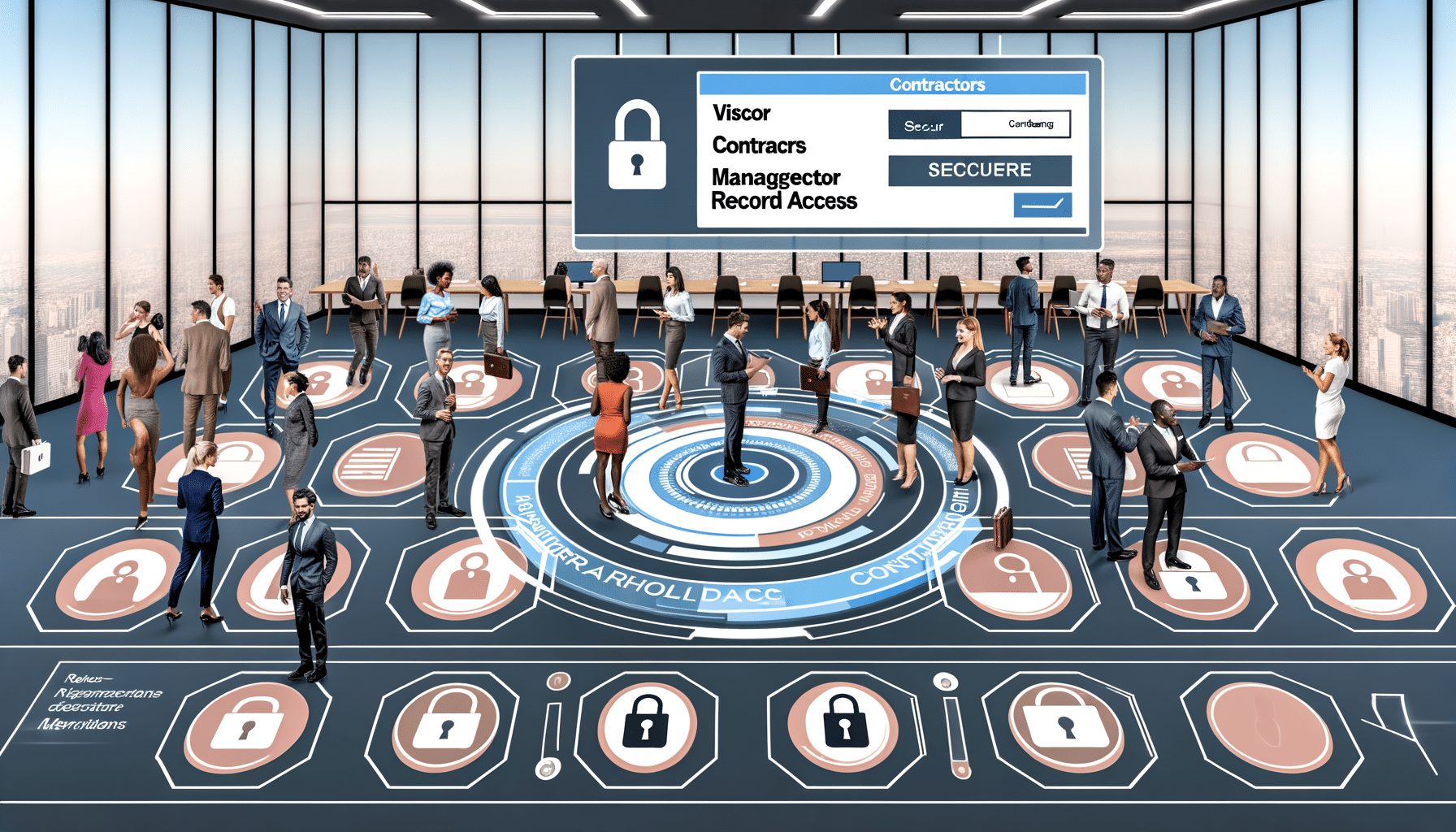- Archive Security
- November 16, 2024
Automatic Access Control Magic With RecordsKeeper.AI

In today’s fast-paced digital world, record management is no longer a luxury but a necessity for businesses that wish to stay competitive while ensuring compliance and security. As a founder of RecordsKeeper.AI, I’ve always aimed to leverage cutting-edge technology to transform how businesses manage their records. We understand that access control, a critical component of record management, can be both challenging and time-consuming. That’s where the “magic” of automatic access control with AI comes into play, revolutionizing our approach to secure and efficient content governance.
Understanding Access Control in Record Management
Access control in record management is essentially about defining who can interact with what data—and to what extent. The traditional methods of controlling access manually have become cumbersome as data volumes grow. Using passwords, shared drives, or even manually assigned roles often leads to confusion and potential security breaches. AI and automation solve these issues by streamlining access management processes in an efficient, scalable manner.
The Role of AI in Modern Access Control
RecordsKeeper.AI brings automation into the mix, thanks to its integrated AI capabilities. Imagine a system that learns from your organizational needs, adapts to changes, and ensures that the right people have access to the right data at the right times. AI in access control focuses on:
- Automating permission settings based on roles and policies.
- Monitoring user behavior to detect and prevent unauthorized access.
- Providing intelligent alerts for unusual activity patterns.
Our platform automates these aspects, significantly reducing the workload on human resource teams and IT departments.
The Advantages of AI-Powered Access Control
Switching to an AI-driven system like RecordsKeeper.AI offers numerous advantages:
- Efficiency: Automation cuts down on errors and human oversight, enabling real-time updates to permissions as teams evolve or projects end.
- Security: With AI monitoring each transaction and user action, systems are safeguarded against potential threats, ensuring only authorized personnel gain access.
- Scalability: Our system grows with your organization, automating thousands of access permissions without degrading in performance or effectiveness.
These benefits translate into time savings, reduced risk of data breaches, and enhanced compliance with industry regulations, proving invaluable for any organization looking to optimize its record management strategies.
Streamlining Compliance with AI
One of the pivotal roles of access control is to ensure compliance with regulatory standards such as GDPR or HIPAA. Maintaining compliance manually is not only resource-intensive but prone to errors. RecordsKeeper.AI helps automate these processes, assuring that access policies are up-to-date and compliant with ever-evolving regulatory landscapes.
Our AI system regularly audits access logs and generates reports that are both comprehensive and straightforward, equipping businesses with all necessary documentation to satisfy regulatory requirements seamlessly. With AI, adhering to these standards becomes less of a hassle and more of an opportunity to bolster your company’s reputation as a compliant entity.
How RecordsKeeper.AI Redefines Security
Incorporating AI with blockchain technology is a game-changer for the security of your records. Our platform prevents tampering and guarantees data integrity by enabling:
- Immutable Records: Maintain verifiable records that are impervious to unauthorized changes.
- Real-Time Active Monitoring: Actively track who accesses data and how it’s used, with immediate insights into any abnormal activity.
- Data Encryption: Safeguard sensitive information with advanced encryption techniques, ensuring that only authorized individuals can decrypt and access data.
Real-World Applications of AI Access Control
Many industries from healthcare to finance are gravitating towards AI-enhanced systems for access control due to their flexibility and robustness. For instance, a healthcare provider might need to ensure seamless yet secure access to patient records to improve care delivery while maintaining patient confidentiality. Financial institutions can protect sensitive data by maintaining stringent access controls through smart AI algorithms, preventing unauthorized access while maintaining necessary operational flexibility.
Conclusion
The adoption of AI for automatic access control in record management is not just a technological evolution; it’s about creating a system that’s secure, efficient, and future-ready. By transforming the approach to access control, RecordsKeeper.AI allows organizations to focus on strategic goals rather than get bogged down by the complexities of data permissions.
For Security heads and compliance officers, embracing AI and blockchain not only mitigates risks but also places your organization ahead of the curve in terms of innovation and forward-thinking infrastructure.
If you seek to revolutionize your record management strategy and protect your organization with AI-driven access control, I invite you to explore more on our platform. Join me, Toshendra Sharma, and be part of the future where technology intelligently safeguards your most valuable assets.
Toshendra Sharma is the visionary founder and CEO of RecordsKeeper.AI, spearheading the fusion of AI and blockchain to redefine enterprise record management. With a groundbreaking approach to solving complex business challenges, Toshendra combines deep expertise in blockchain and artificial intelligence with an acute understanding of enterprise compliance and security needs.
Related Posts


Handling Sensitive Records in Open Offices
Maintaining confidentiality in open workspace layouts.
- December 9, 2024
Archives
- January 2025
- December 2024
- November 2024
- October 2024
- September 2024
- August 2024
- July 2024
- June 2024
- May 2024
- April 2024
- March 2024
- February 2024
- January 2024
- December 2023
- November 2023
- October 2023
- September 2023
- August 2023
- July 2023
- June 2023
- May 2023
- April 2023
- March 2023
- February 2023
- January 2023
- December 2022
- November 2022
- October 2022
- September 2022
Want to get more content like this?
Signup to directly get this type of content to your inbox!!
Latest Post
Document Control for Equipment Maintenance
- January 20, 2025
Managing Records for Multiple Clients
- January 19, 2025
Handling Conference Documentation
- January 18, 2025
Setting Up Department Record Reviews
- January 17, 2025





